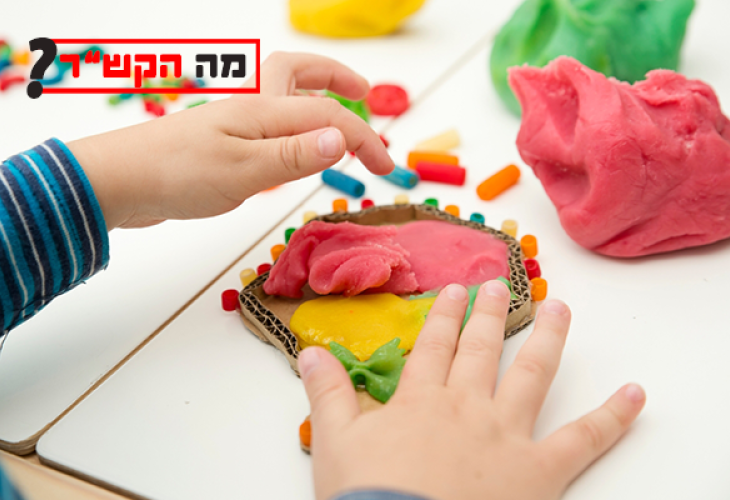Discovering the Right Path: Our Journey with Cognitive Therapy
When traditional therapy wasn't quite enough, a friend's recommendation led us to discover Cog-Fun therapy. It was a game changer!
 (Photo: Shutterstock)
(Photo: Shutterstock)Previously on our journey: The Relief of a Diagnosis
Just a few weeks ago, I wrote about the overwhelming amount of paperwork that comes with raising a child with ADHD. Now, I've come to realize another challenge: frequent outings, journeys, and walks are part of the package if I want to help my daughter.
Since the start of first grade post-holidays, I began taking Michali to a small after-school group once a week to help her with homework. The group was cozy, with a warm, friendly teacher and a handful of students, offering truly beneficial support. It's a 25-minute walk each way (no bus service), on top of a 90-minute session, meaning I either wait around, go shopping, or dash home for a quick visit before returning to pick her up.
And now, thank Hashem, we added occupational therapy to our weekly routine. An additional bus ride and walk to boot. Naturally, the available slot meant pulling her out of school once a week, missing a lesson each time—which presented its own challenge since that meant catching up on missed work weekly... But if the therapy helps, isn't it worth the effort?
We met a wonderful therapist named Tehila. She reviewed Michali's file and listened to my concerns, opting to work with her on planning ahead and maintaining order. It sounded promising.
Except, it wasn't.
The sessions themselves were delightful, and Michali enjoyed them immensely. Tehila engaged her with stimulating games, no doubt. But practically—there was no improvement. Outside the clinic, it was as if nothing had been learned. Michali refused to cooperate in applying the lessons. It felt like a waste of time and effort, infringing on her school hours and my work, for half an hour of fun without any added value.
After several such weeks, I vented to a friend with some insight into the field. Her simple suggestion was, "She needs Cog-Fun."
I thought I misheard. Cog-what? What was that term? I had never come across it before...
Yet she repeated it, insisting, "Look into it. It's perfect for her."
So, I did some research and discovered an entire world. It turns out that the Cog-Fun method (short for "Cognitive Functional Intervention") is a specialized form of occupational therapy tailored specifically for children, teens, and adults with ADHD. It sounded ideal for Michali. I began searching for Cog-Fun practitioners while simultaneously looking into my eligibility for health insurance reimbursement for private treatment.
* * *
A quick word on divine assistance.
We need divine assistance in everything. It's a given. Nothing happens without His help. The entire process of raising children for me is interspersed with countless prayers on their behalf, and in times of difficulty—those prayers soar. Yet, the divine aid isn't always evident to the naked eye. Sometimes it's concealed, appearing as an endless series of challenges. That's how I felt up to that point. Endless running around, more difficulties, nothing aligning. And sometimes it was tough, even discouraging.
The day I searched for a Cog-Fun therapist was pivotal for me, uplifting my spirit and faith multiple levels. Suddenly, a gust of hope swept over me, something tangible, focused, and perfectly aligned for me by divine design. I always know Hashem is with me. But that moment, when something fell into place easily—helped me deal with the other struggles that were particularly tough. It reminded me of this simple fact: everything is from Heaven.
* * *
In the list of Cog-Fun therapists I received, there was precisely one available in my city. I called and left a message. She got back to me in under an hour.
She's a certified occupational therapist currently training in Cog-Fun, working alongside another practitioner, both guided closely by their mentor. Yes, they had available slots starting next week!
From waiting months for regular occupational therapy to waiting less than a week for a treatment perfectly tailored to Michali? Thank You, Hashem. And that's not all... "Where are you located?" I asked her, and she gave a street name. A mere 5-minute walk from my house.
An after-school slot, at a convenient time, no missed classes.
Have I mentioned? Thank You, Hashem.
* * *
On a side note: Several responses to a previous post deserve attention.
One commenter wrote:
Didn't the doctor/diagnosis only help by providing a prescription? So if you don't want medication, why diagnose? What does the diagnosis give? What support is there for ADHD kids?
Indeed, children with ADHD face numerous challenges, and there are many ways to support them, not necessarily through medication. But ultimately, yes, the diagnosis and the doctor didn't offer me information beyond "ADHD—medication." Most of my current knowledge on ADHD comes from sources unrelated directly to the field, people who learned through experience or acquired professional knowledge but do not work in the field. And that's very unfortunate. One of my dreams is to find a way to educate diagnosing doctors, so they can prepare parents for what to expect and how to help.
Another commenter noted:
With a diagnosis, one can qualify for school support, which is significant. Access to private tutoring hours within the school and things like test accommodations, all free. Even if you don't choose medication, a formal diagnosis helps.
You surprised me! I wasn't aware of such eligibility and would appreciate it if you could provide more details here. Eligibility from whom, and how is it obtained? I'm aware of exam accommodations eligibility, but I didn't know there were other options and would love to get updated.
Do you have ADHD at home? Feel free to share your experiences.

